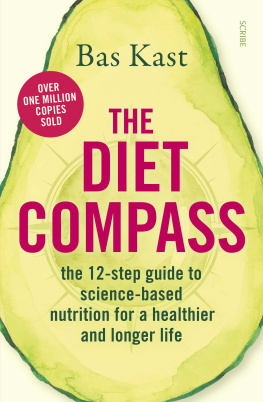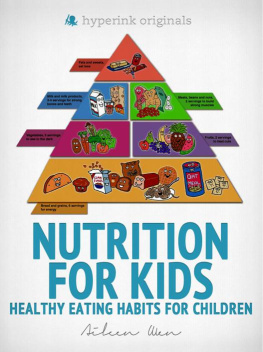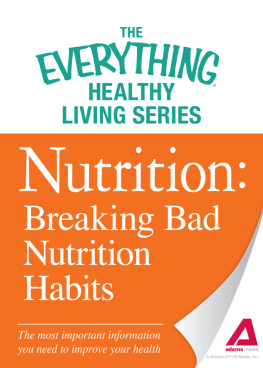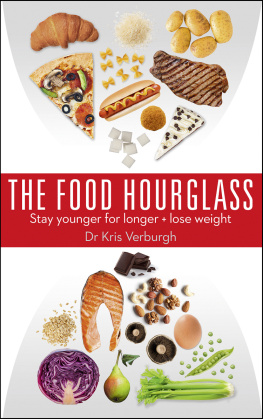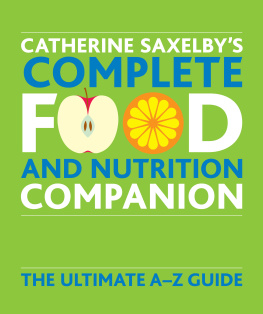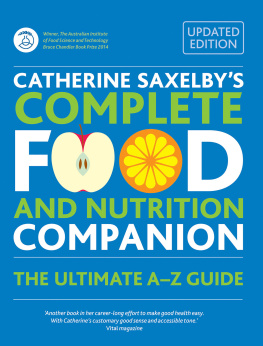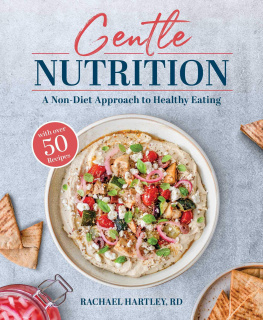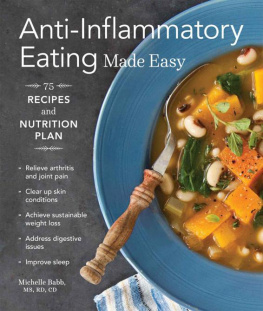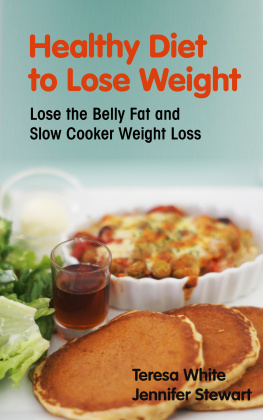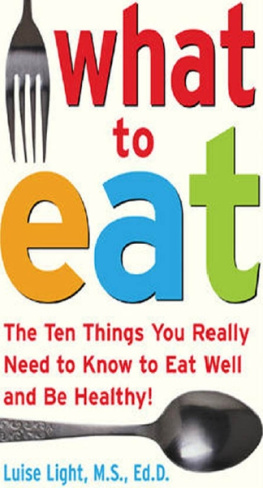
THE DIET COMPASS
Bas Kast was born in 1973, and studied psychology and biology in Germany and the US. He works as a science journalist and author. His publications include I Do Not Know What I Want (2012) and And Suddenly CLICK! (2015).
Thank you, Ellen, for the inspiration!
Scribe Publications
2 John Street, Clerkenwell, London, WC1N 2ES, United Kingdom
1820 Edward St, Brunswick, Victoria 3056, Australia
3754 Pleasant Ave, Suite 100, Minneapolis, Minnesota 55409, USA
Originally published in German as Der Ernhrungskompass: Das Fazit aller wissenschaftlichen Studien zum Thema Ernhrung by Bas Kast
First published in English by Scribe 2020
2018 C. Bertelsmann Verlag, a division of Verlagsgruppe Random House GmbH, Mnchen, Germany
Translation copyright David Shaw 2020
All rights reserved. Without limiting the rights under copyright reserved above, no part of this publication may be reproduced, stored in or introduced into a retrieval system, or transmitted, in any form or by any means (electronic, mechanical, photocopying, recording or otherwise) without the prior written permission of the publishers of this book.
Insofar as this publication contains links to third-party websites, no liability is accepted for their content, as we take no ownership of that content and refer to it only as it appeared at the time of first publication.
9781912854936 (UK edition)
9781950354290 (US edition)
9781925849844 (Australian edition)
9781925938371 (ebook)
Catalogue records for this book are available from the National Library of Australia and the British Library.
scribepublications.co.uk
scribepublications.com
scribepublications.com.au
CONTENTS
INTRODUCTION
CHAPTER 1
CHAPTER 2
CHAPTER 3
CHAPTER 4
CHAPTER 5
CHAPTER 6
CHAPTER 7
CHAPTER 8
CHAPTER 9
CHAPTER 10
CHAPTER 11
CHAPTER 12
EPILOGUE
INTRODUCTION
Why I radically changed my diet
The day my heart went on strike
It was one spring evening a couple of years ago, when there was still a glorious freshness in the air as I was just setting off for my usual run, that I realised something was not right. Over the previous few weeks, I had grown almost used to something a new addition to the usual little aches and pains which I had not been plagued by before. By now, it had become almost normal to me: shortly after setting off for my run, after the first few strides, I would always get a strange feeling in my chest, as if my heart were skipping a beat.
Nothing serious, just some kind of cardiological hiccup that went away again as quickly as it appeared.
As I continued my run on this particular evening, however, I had barely covered a kilometre when I was violently stopped in my tracks, as if I had run headlong and at full speed into an invisible wall a wall which brought me to an abrupt and jarring halt. I dont know exactly how to describe this sensation. It feels like a fist of steel grabbing your heart and suddenly squeezing. It hurts, but that isnt the worst part of it by far. The worst, most frightening bit is the overwhelming force with which it bears down on you and brings you to your knees. You stop in your tracks, but not because you think you should take a quick breather; no, you are forced to stop. All you can do is stand there, holding your chest, gasping for breath and hoping it will go away soon. And that you will be spared this time and will somehow come out of this unharmed.
I have no idea how long I stood there, slightly bent over, hands resting on my thighs, coughing, panting for breath. At some point, I cautiously began to move, making a tentative attempt to break into a trot every so often, before taking another break.
I didnt dare try to run again.
I love running. Not for health reasons at least, not when I was younger; quite the opposite, in fact. I was like an alcoholic whose liquor was kilometres. For me, good health was always just a given.
I paid no attention to what I ate. Working as the science editor of the Berlin-based daily newspaper Der Tagesspiegel , I was easily able to keep my body going for days on end with just coffee and potato chips. Im embarrassed about it now, but back then my envious nieces saw me as the uncle who ate chocolate for breakfast and finished off the day with a packet of potato chips washed down with beer. Whenever they came to visit, they would ask me, incredulously, Do you really eat potato chips for dinner? Sometimes, yeah! And why not? I could eat whatever I wanted. I was miraculously fat-resistant.
Then, however, sometime in my mid-30s, I lost my talent for effortless leanness. My body was somehow no longer able to put away all that junk food without it leaving a trace. Although I was still running almost every day, I developed a little belly or, more accurately, an extremely tenacious spare tyre.
Perhaps it would have been better if I hadnt run. Then I would have got fat faster, and I wouldnt have been able to ignore what I was doing to my body. But as it was, my weight gain was slow and insidious, and I considered myself a fit person. Until that spring evening, when my heart slammed on the emergency brake.
You might think I went home that evening and had a good think about my life, that I was shaken into action by this wake-up call from my body. But at first I did nothing. I clung to my image of myself as a fat-resistant athlete. My body must be wrong.
Months went by, and I carried on as usual. Just as I had grown accustomed to that skip in my heartbeat while running, I now got used to the attacks, which were sometimes quite severe, other times less so. Never again was I able to feel as carefree and liberated while running as I had before. Rather, every time I went for a run, I was constantly waiting for my heart to start rebelling at some point. And I didnt usually have to wait very long.
Then came a period when the attacks would visit me at night while I was sleeping. I would flail about in bed, only half awake, grab my pillow or even my wife in a panic. There, there, you just had a bad dream, she would try to calm me. You were having a nightmare. But I knew, or at least sensed, what the real trouble was.
I can imagine what youre thinking. And yes, of course, I thought about seeing a doctor. I was on the verge more than once but at the last minute, something inside me always balked at actually going through with it. I have nothing against doctors; when its absolutely necessary, I am happy and grateful to avail myself of the wonders of modern medicine. Just, not before its absolutely necessary. The way I see it is this: my health is first and foremost my own responsibility, and only at the point when I am unable to take care of it myself does it become the responsibility of a doctor. Despite that or perhaps precisely because of that I now had to do something. Something had to change.
So thats how all this started. The breakdown of my own body, which began far earlier than I had ever imagined it would, forced me to change the way I thought: both generally, about the way I had been living my life up until then, and specifically, about all the junk I had shovelled into my body without a second thought. They say that inside every ageing person is the young person they used to be, wondering what happened. So what had happened? There I was, in my early 40s, recently having become a father to a little boy. Had I brought these premature heart problems on myself? What would become of me if I carried on this way?
It never ceases to amaze me how good we are at ignoring our own faults and weaknesses. How we are able to turn a blind eye even while someone is holding a mirror up to us and practically forcing us to look into it. But at some point, if were lucky, something happens, something magical or at least, something that I dont think can be fully explained and the penny drops. Then youre ready. You are finally ready to make a change. More than ready: you want to change.
Next page
